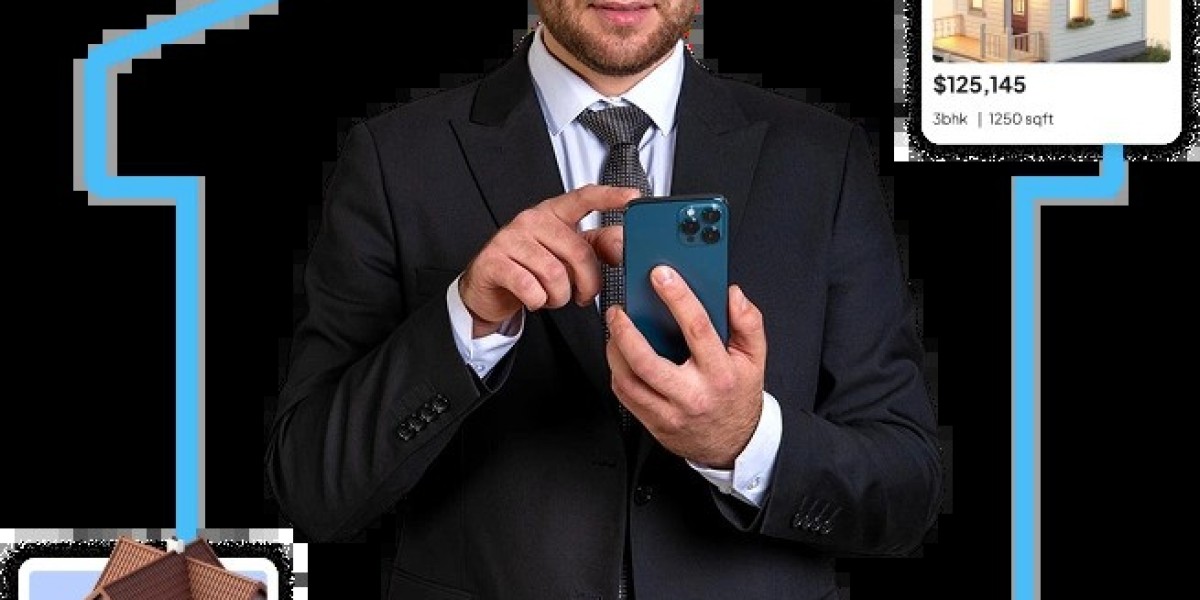Zillow has become one of the most recognizable brands in real estate, attracting hundreds of millions of visitors each year. What started as a simple home-search website has grown into a real estate ecosystem generating billions of dollars in revenue. For entrepreneurs building a Zillow clone, understanding Zillow’s business model is essential. It reveals which strategies work, which revenue streams scale well, and where the greatest opportunities lie in today’s real estate market.
This article breaks down how Zillow makes money—and more importantly, how your Zillow clone can replicate or even improve on those revenue streams.
1. Zillow’s Core Business Model
Zillow operates as a real estate marketplace, connecting buyers, sellers, renters, landlords, agents, lenders, and property managers. Unlike traditional brokerages, Zillow doesn’t rely on commissions from property sales. Instead, it uses data, traffic, advertising, and partnerships to generate revenue.
The key to Zillow’s success is its ability to attract massive web traffic. The more users Zillow acquires, the more valuable its advertising space and premium services become.
A Zillow clone can follow this same logic:
more traffic → more leads → higher ad revenue → more monetization opportunities.
2. Major Zillow Revenue Streams
Below are Zillow’s biggest sources of revenue—and how your Zillow clone can replicate each one.
1. Premier Agent Program (Agent Advertising)
How Zillow Makes Money
Zillow’s most profitable revenue stream is its Premier Agent advertising program. Real estate agents pay to appear:
at the top of search results,
on popular listing pages,
in specific ZIP codes or neighborhoods.
Leads generated through these placements are delivered directly to the agents, who pay monthly or per-lead.
How Your Zillow Clone Can Monetize This
You can offer:
Featured Agent Listings
Sponsored Profiles
Paid ZIP-Code Targeting
Pay-Per-Lead (PPL) Packages
Subscription Tiers for Agents
This is hands-down the most consistent and scalable revenue source for Zillow-style platforms.
2. Featured Listing Advertising
How Zillow Makes Money
Agents and property managers can pay to promote listings. Featured listings appear higher in search results and receive more visibility.
How Your Zillow Clone Can Monetize This
You can offer:
“Boost Listing” buttons for sellers
Monthly promotion packages
Priority placement on category pages
City-level or neighborhood-level promotions
This is especially effective in competitive markets.
3. Rental Listings and Property Manager Tools
How Zillow Makes Money
Landlords and property managers pay Zillow to:
list rental properties,
screen tenants,
collect rent,
manage leases,
run background and credit checks.
Zillow charges per listing in many U.S. cities and sells add-on services.
How Your Zillow Clone Can Monetize This
You can provide:
Rental listing packages
Tenant screening fees
Rent collection utilities
Lease management tools
Subscription software for landlords
Rental tools generate recurring monthly revenue, making them ideal for marketplace platforms.
4. New Construction and Builder Advertising
How Zillow Makes Money
Home builders pay to advertise new developments through:
sponsored community listings,
new construction ads,
featured builder profiles.
This market is extremely profitable because builders have large advertising budgets.
How Your Zillow Clone Can Monetize This
You can sell:
Builder promotion packages
Featured community pages
Priority placement for new developments
Lead-generation services for builders
This segment often pays more than individual agents.
5. Mortgage Marketplace and Financial Services
How Zillow Makes Money
Zillow operates a mortgage marketplace, where lenders pay to be featured and receive high-intent leads. Zillow also offers mortgage calculators and pre-approval tools that drive conversion.
How Your Zillow Clone Can Monetize This
You can integrate:
Mortgage lender advertising
Affiliate programs with banks
Referral fees for loan applications
Commission on mortgage leads
In-platform pre-approval tools
Financial leads tend to convert at high value, making this a strong long-term revenue stream.
6. Zillow Home Loans (ZHL)
How Zillow Makes Money
In addition to the mortgage marketplace, Zillow offers its own lending services through Zillow Home Loans, allowing users to:
finance purchases,
refinance existing homes,
get pre-approved.
This is a direct revenue stream from loan origination fees.
How Your Zillow Clone Can Monetize This
You can:
partner with a mortgage provider,
integrate a private-label mortgage service,
earn referral fees from loan brokers.
While offering loans directly requires licensing, partnerships are easy to implement.
7. Zillow 3D Home Tours and Media Services
How Zillow Makes Money
Zillow sells tools for:
3D home tours,
floor plan generation,
virtual staging.
Agents pay to use these tools to improve their listings.
How Your Zillow Clone Can Monetize This
You can offer:
Paid 3D tour creation
Premium video hosting
Virtual staging services
Interactive floor plan packages
These services create value-added upsells for agents.
8. Data Licensing and Market Analytics
How Zillow Makes Money
Zillow owns one of the largest real estate databases in the world. They monetize data through:
partnerships,
API access,
analytics tools for professionals.
How Your Zillow Clone Can Monetize This
You can sell:
Access to detailed market insights
Local data reports
Neighborhood analytics dashboards
Property history reports
Data monetization becomes effective once your platform gathers enough user activity and listing data.
3. How Zillow Built the Foundation for Monetization
Zillow’s revenue model works because the platform focuses on three pillars:
1. Traffic Volume
The more visitors you attract, the more you can charge for:
advertising,
leads,
premium placements,
mortgage referrals.
A successful Zillow clone must invest heavily in SEO, social media, and user engagement.
2. Data Accuracy and Depth
Users return to Zillow because they feel informed.
Your Zillow clone should include:
market trends,
price history,
neighborhood insights,
school ratings,
walkability scores.
Better data = higher user trust.
3. A Multi-Sided Marketplace
Zillow serves:
buyers,
sellers,
agents,
landlords,
lenders,
property managers.
The more user groups you serve, the more revenue streams you unlock.
4. How Your Zillow Clone Can Add Even More Revenue Streams
Beyond Zillow’s model, you can implement additional monetization methods that Zillow doesn’t emphasize.
1. Subscription Plans for Agencies
You can offer:
monthly agency accounts
branded pages
bulk listing uploads
analytics dashboards
2. Lead Referral Fees
Charge agents for:
exclusive leads
high-intent buyer inquiries
seller leads
rental leads
3. Real Estate Courses and Digital Products
Offer:
paid e-books,
investment guides,
agent training courses,
homebuyer education programs.
4. Affiliate Marketing
Promote:
moving companies
home insurance providers
inspection services
interior designers
home improvement brands
5. Premium User Subscriptions
For serious buyers/sellers, offer:
early access to listings
premium analytics
investment-grade insights
rent-to-own matching tools
5. Choosing the Right Revenue Mix for Your Zillow Clone
Every real estate platform is different. Your clone should optimize revenue streams based on:
local market demand,
target audience,
listing volume,
competitive landscape.
For most startups, the recommended monetization mix is:
Agent advertising
Featured listings
Rental tools
Mortgage referrals
Affiliate partnerships
This combination is profitable, scalable, and easier to implement.
Conclusion
Zillow’s multi-billion-dollar business model is built on one principle:
traffic + data + multi-channel monetization = explosive revenue.
By understanding how Zillow makes money, you can design a Zillow clone that delivers real value to users while generating strong income for your business. Whether you choose advertising, lead generation, rentals, mortgages, or analytics, the key is to combine multiple revenue streams—and continue adding more as your platform grows.
A Zillow clone isn’t just a real estate website.
It’s a full digital ecosystem with massive earning potential.








